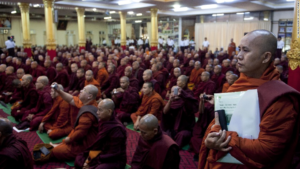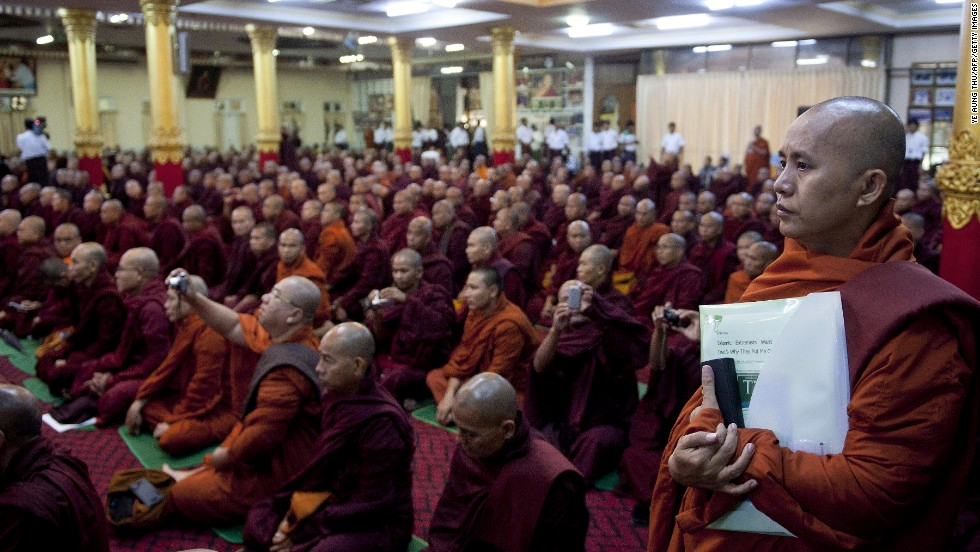
On July 7, 2015, Myanmar’s parliament passed the Buddhist Women’s Special Marriage Bill (“Marriage Bill”). The measure is one of four (one of which has passed and two of which are still pending) that are aimed at protecting race and religion in the country, known as the Protection of Race and Religion Laws. The Marriage Bill will make it difficult for Buddhist women to marry outside their faith. There is a fear that if the bill is signed into law, religiously motivated violence will erupt in the country. And given Myanmar’s past, such fears are not baseless.
The Marriage Bill requires Buddhist women who intend to marry outside their faith to register with the government. If there are objections to the marriage, the couple can be stopped from marrying. Some see the measure as a step to repress women. Especially since President Thein Sein signed into law the Population Control Health Care Bill (“Healthcare Bill”) in May. Now, some mothers (i.e. poor mothers) are required to wait 36 months between each pregnancy. According to US Deputy Secretary of State Anthony Blinken, this legislation could be used to “undermine reproductive rights, women’s rights, and religious freedom.”
But it is the religious freedom aspect that is causing human rights organizations most cause for concern. This is because the Marriage Bill (as well as the Health Care Bill) is specifically targeted at regulating Rohingya Muslims, the religious minority in the country. The Marriage Bill is aimed at limiting marriages between Buddhist women and Rohingya Muslim men. Both laws were drafted due to pressure exerted by extremist Buddhist monks in the country that hold a lot of political sway. In fact, the passage of the Marriage Bill (and the other three Protection of Race and Religion Laws) is just a continuation of a long line of discriminatory acts by the Myanmar government against the Rohingya.
The systematic discrimination against the Rohingya in Myanmar began in the early 1990s. Since then, Rohingya have been denied citizenship, despite the fact that their ancestors have lived within the current Myanmar borders for generations. The animosity against the Rohingya has been motivated by extremist Buddhist beliefs. Buddhism is the majority religion in the country. In 2012, this animosity exploded into violence. Since then, almost 140,000 Rohingya have been herded into a makeshift, costal camp that they are not allowed to leave. The conditions in the camp are prompting many residents to flee the country, creating a refugee crisis in the region. The rest of the Rohingya residents of the country are similarly severely restricted when it comes to travel. All Rohingya in the country, no matter their location, face severe discrimination.
In light of the historical, and all too recent religious tensions in Myanmar, the passage of the Marriage Bill has human rights organizations concerned. Some have heralded the law as dangerous and as hate speech against an oppressed minority. If the bill is signed into law, violence is predicted to erupt. Others hope that the passage of the Marriage Bill will galvanize the international community to take action before the discrimination against Muslims in Myanmar reaches, or surpasses, the levels seen in 2012.
President Sein, has until July 28, 2015 to sign the bill into law. As of today, he has not done so. Myanmar, and the international community, can only wait with baited breath, hoping that the bill is not signed into law. And if it is, hopefully the international community will exert much needed pressure on the Myanmar government to suppress any religiously motivated violence stemming from its passage.
Allison Derschang is a 2L at the University of Denver Sturm College of Law and is a Staff Editor on the Denver Journal of International Law and Policy.


